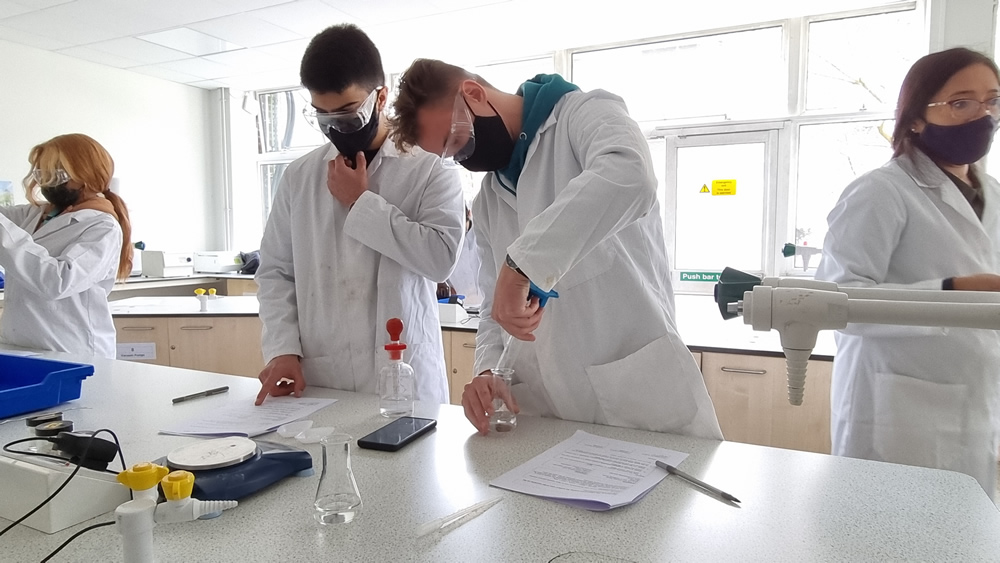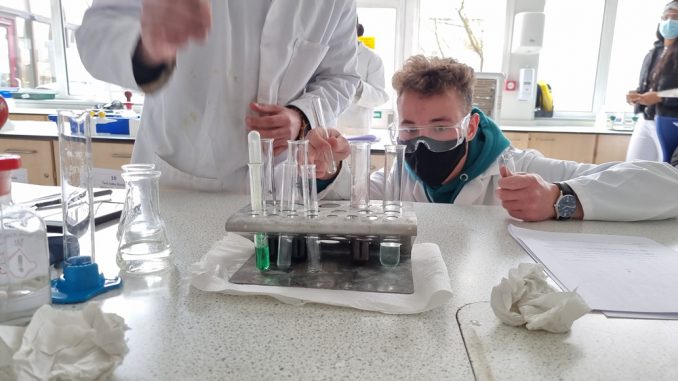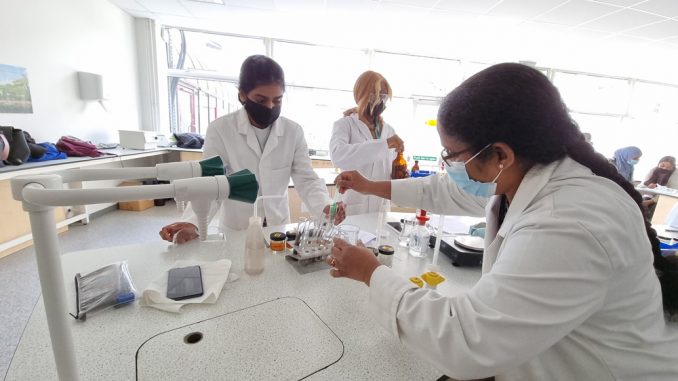
‘It wasn’t just an extra pair of hands, it was a really good pair of hands. We didn’t feel like they were students, we felt like they were our employees.’
Kanika Mehan, Medical Device Training and Library Officer, Imperial College Healthcare NHS Trust
Technicians are the backbone of the STEM industry, but every year 50,000 experienced technicians retire and take years of knowledge with them. In the next decade, 700,000 new technicians will be needed to fill these gaps. Have you thought about how to engage with the local workforce and build a talent pipeline, finding the best young people to join your workforce?
 T Levels are a new qualification, first introduced in September 2020 to develop employability and technical skills for the next generation. 2021 introduces a Science T Level with an occupational specialism in Laboratory Sciences. Students spend 80% of their time in the classroom, learning practical skills such as good scientific practice, data handling, and health and safety within the workplace. The rest of the time is in the workplace, completing a 315 hour unpaid placement in industry. T Levels have been created by employers, for employers, with an employer panel including GlaxoSmithKline, AstraZeneca Group, Royal Society of Chemistry and The Royal Marsden NHS Foundation Trust.
T Levels are a new qualification, first introduced in September 2020 to develop employability and technical skills for the next generation. 2021 introduces a Science T Level with an occupational specialism in Laboratory Sciences. Students spend 80% of their time in the classroom, learning practical skills such as good scientific practice, data handling, and health and safety within the workplace. The rest of the time is in the workplace, completing a 315 hour unpaid placement in industry. T Levels have been created by employers, for employers, with an employer panel including GlaxoSmithKline, AstraZeneca Group, Royal Society of Chemistry and The Royal Marsden NHS Foundation Trust.
One of the trusts that has led the way working with T Level students is Imperial College Healthcare NHS Trust. After an induction and training programme, and some time shadowing experienced staff, students worked across three hospitals in a number of departments including the Medical Equipment Library.
“I definitely recommend taking a T Level student on. They give you an added workforce for limited cost, they are an extra pair of hands. Invariably they are keen, conscientious and they want to understand what we do and by doing that they help us deliver a better service.”
Max McClements, Head of Clinical Technical Services, Imperial College Healthcare NHS Trust
Your local College can support you in setting up an Industry Placement Scheme within your workplace. The first step is to think about projects and tasks that a young person could help your employees with. Do you have tasks that with some training and supervision, could be completed by a motivated and talented young person?
“One of the misconceptions is that there won’t be anything for students to do. We treated them like our own employees and the same way you find tasks that are suitable for your own employees to do, you soon find tasks for the students.”
Kanika Mehan, Medical Device Training and Library Officer, Imperial College Healthcare NHS Trust
Imperial College Healthcare NHS Trust has taken 4 T level students this year and will be taking a further 9 next academic year.
One of the most common tasks our employers have found that students can excel in is the cleaning & calibration of laboratory equipment. With training, a student can learn how to safely clean a range of equipment, including those which may have fluids or other hazards on them. In their course students will be taught how to calibrate basic lab equipment such as pH meters, balances and mechanical pipettes. You can teach them how to check functionality of equipment specific to your lab and to inform the correct member of staff if equipment is not working correctly.
 Students can also carry out some practical scientific techniques – by the end of their course students will have experience in the following areas: paper and thin layer chromatography, distillation, acid-base and redox titration, refluxing, filtration, differential staining (microorganisms), aseptic culture of microorganisms, preparation of serial dilution, preparing a solution of defined molar concentration and colorimetry. They do not need to do all of these on placement, but if you have any way that they can experience any of the above, it would be extremely useful for them. They can be taught other techniques and can carry them out with supervision if you are happy with their competency level.There may also be other more complex activities that you would not allow students to partake in, but they can observe safely. Based on your experience with the student, you can make this decision.
Students can also carry out some practical scientific techniques – by the end of their course students will have experience in the following areas: paper and thin layer chromatography, distillation, acid-base and redox titration, refluxing, filtration, differential staining (microorganisms), aseptic culture of microorganisms, preparation of serial dilution, preparing a solution of defined molar concentration and colorimetry. They do not need to do all of these on placement, but if you have any way that they can experience any of the above, it would be extremely useful for them. They can be taught other techniques and can carry them out with supervision if you are happy with their competency level.There may also be other more complex activities that you would not allow students to partake in, but they can observe safely. Based on your experience with the student, you can make this decision.
“They came at a perfect time, there were lots of staff taking annual leave and we were very busy supporting the Trust during the COVID surge. It was the perfect opportunity to have an extra pair of hands. The students we selected were really helpful, eager and quick to learn. They were proactive which we really liked. I hope the students found it fulfilling as well to be part of the NHS when we really needed them.”
Kanika Mehan, Medical Device Training and Library Officer, Imperial College Healthcare NHS Trust
The T Level is the first step in a student’s career, they can then go onto work, or an apprenticeship, depending on your business needs. It is a great way to help the community, to build your talent pipeline, to help your staff build their management and supervisory skills and of course, to get extra assistance for any specific projects or your everyday tasks.
If this sounds like something that you would like to hear more about, contact Suzanna Butler subutler@uxbridgecollege.ac.uk, (T Level Development Manager, Harrow and Uxbridge College), to arrange a short meeting to help get you started.
Article by kind permission of Harrow and Uxbridge College
